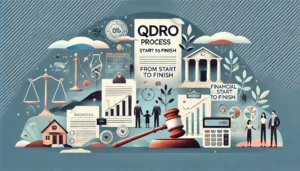My Wife Wants a Divorce: What Are My Rights?
Divorce is an emotionally challenging time, and when your spouse initiates the process, it can feel overwhelming and uncertain. If you’re in a situation where your wife has expressed a desire for divorce, understanding your rights is critical to navigating this transition with clarity and confidence. In this comprehensive guide, we’ll explore the legal, emotional, and practical steps you can take to protect your interests while also fostering a respectful and cooperative process.

Why Understanding Your Rights is Crucial
When facing divorce, the uncertainty of what lies ahead can be daunting. Divorce involves not just emotional upheaval but also significant financial, legal, and familial implications. By equipping yourself with knowledge about your rights, you can:
- Protect your financial interests.
- Advocate for fair arrangements concerning children.
- Ensure a respectful and equitable division of assets.
- Prepare for a smoother transition into post-divorce life.
For more resources on navigating complex legal situations, visit Jurisyn’s guide to legal services.
Legal Rights During Divorce: A Step-by-Step Breakdown
1. Right to a Fair Division of Property
One of the primary aspects of divorce is the division of marital assets. Courts aim to divide property equitably, which doesn’t always mean equally but considers fairness for both parties.
Types of Property:
- Marital Property: Assets acquired during the marriage, such as the family home, vehicles, and joint bank accounts.
- Separate Property: Assets owned before the marriage or received individually through inheritance or gifts.
Factors Courts Consider:
- The duration of the marriage.
- Each spouse’s contribution to acquiring marital assets (financial and non-financial).
- The future financial needs of both parties.
For more insight on asset division, explore our article on real estate transactions and legal issues.
2. Rights Concerning Spousal Support (Alimony)
Alimony is financial support provided by one spouse to the other after divorce. Whether you’re eligible to receive or responsible for paying alimony depends on various factors.
Types of Alimony:
- Temporary Alimony: Awarded during divorce proceedings.
- Rehabilitative Alimony: Helps a spouse gain skills or education to become self-sufficient.
- Permanent Alimony: Granted in long-term marriages when one spouse cannot achieve financial independence.
Factors Determining Alimony:
- The financial disparity between spouses.
- Contributions to the marriage, including homemaking or supporting a partner’s career.
- The standard of living during the marriage.
Learn more about related topics like estate planning and its implications for divorce on Jurisyn’s estate planning guide.
3. Custody and Visitation Rights
If you have children, their well-being becomes a central focus during divorce proceedings. Both parents have equal rights to seek custody, and the court’s primary consideration is the child’s best interests.
Custody Types:
- Physical Custody: Determines where the child lives.
- Legal Custody: Covers decision-making authority over education, healthcare, and other key aspects of the child’s life.
- Joint Custody: Shared physical or legal custody between parents.
- Sole Custody: Awarded to one parent in certain circumstances.
Factors Courts Consider:
- The child’s age and needs.
- Each parent’s involvement in the child’s life.
- The ability to provide a stable and nurturing environment.
If your wife wants to relocate with your children, this can complicate custody. It’s essential to understand your rights and consult an experienced attorney. For remote legal support, consider Jurisyn’s remote legal services.
4. Financial Rights and Child Support
Both parents are responsible for supporting their children financially, regardless of custody arrangements. If your wife is seeking child support, or if you expect to receive it, the court will calculate the amount based on:
- Each parent’s income.
- The child’s living expenses.
- Custody arrangements.
Remember, child support is intended solely for the child’s well-being and expenses such as education, healthcare, and extracurricular activities.
Common Concerns When Your Wife Wants a Divorce
What If I Don’t Want a Divorce?
While it’s natural to feel resistance if you don’t want the divorce, your rights depend on the circumstances:
- Counseling or Mediation: If you believe reconciliation is possible, you can request counseling or mediation to address marital issues.
- Legal Options: If irreconcilable differences are cited, most states allow one spouse to proceed with the divorce without the other’s agreement.
Can I Prevent My Wife from Taking All the Assets?
Divorce laws are designed to prevent one party from unfairly benefiting at the expense of the other. Courts typically divide marital property equitably, and you have the right to contest any unfair distribution.
What Happens If My Wife is Hiding Assets?
If you suspect hidden assets, your attorney can request financial disclosures or hire forensic accountants to uncover them. Courts take hiding assets seriously and may impose penalties on dishonest parties.
What If My Wife is the Higher Earner?
If your wife earns significantly more than you, you may be entitled to spousal support or a larger share of marital property to ensure financial fairness.
Practical Steps to Protect Your Rights
- Consult an Attorney Early The first step is to consult a family law attorney who can guide you through the legal landscape and ensure your rights are protected. For flexible legal solutions, check out Jurisyn’s remote legal services.
- Document Everything Maintain detailed records of:
- Marital assets and debts.
- Income sources.
- Your involvement in raising children and managing the household.
- Avoid Rash Decisions Emotions run high during divorce, but making impulsive decisions can harm your case. Always consult your attorney before signing any agreements.
- Consider Mediation Mediation can be a cost-effective and less adversarial way to resolve disputes. It encourages cooperation and often results in more amicable outcomes.
The Emotional and Psychological Impact of Divorce
Divorce isn’t just a legal process; it’s an emotional journey. It’s important to acknowledge your feelings and seek support when needed:
- Therapy: A professional therapist can help you process emotions and develop coping strategies.
- Support Groups: Connecting with others who have gone through similar experiences can provide comfort and perspective.
- Focus on Self-Care: Prioritize your physical and mental health during this challenging time.
For additional tips on navigating major life transitions, explore Jurisyn’s insights on empowerment.
Conclusion: Taking Control of Your Divorce Journey
If your wife wants a divorce, it’s natural to feel a mix of emotions—fear, sadness, and uncertainty. But remember, this is also an opportunity to advocate for yourself and build a new chapter in your life. By understanding your legal rights, consulting with a trusted attorney, and preparing thoroughly, you can ensure a fair outcome that respects both parties.
At Jurisyn, we’re here to support you through every step of the process. Whether it’s understanding your rights, navigating property division, or securing custody arrangements, our legal services are designed to provide clarity and confidence in your time of need. Explore our remote legal support options to find the guidance you need, wherever you are.
Empower yourself today, and take the first step toward a brighter tomorrow.
Additional Resources for Guidance
If you’re looking for further information and support during this challenging time, here are some trusted resources to explore:
- Jurisyn: Comprehensive Legal Services
Access remote legal services tailored to your needs and explore articles on various legal topics. - Legal Aid Society
Provides affordable legal assistance and resources to help navigate divorce and other family law matters. - DivorceNet
Offers detailed articles and insights on divorce laws, child custody, and financial settlements. - Nolo: Spousal Support Guide
Learn about alimony types, calculations, and factors influencing spousal support decisions. - American Bar Association
Find tools and resources to understand family law and locate qualified attorneys in your area.
These resources can empower you with the knowledge and support to make informed decisions during your divorce journey.





